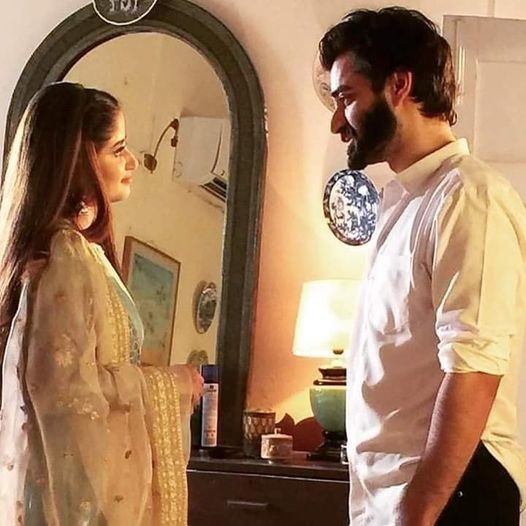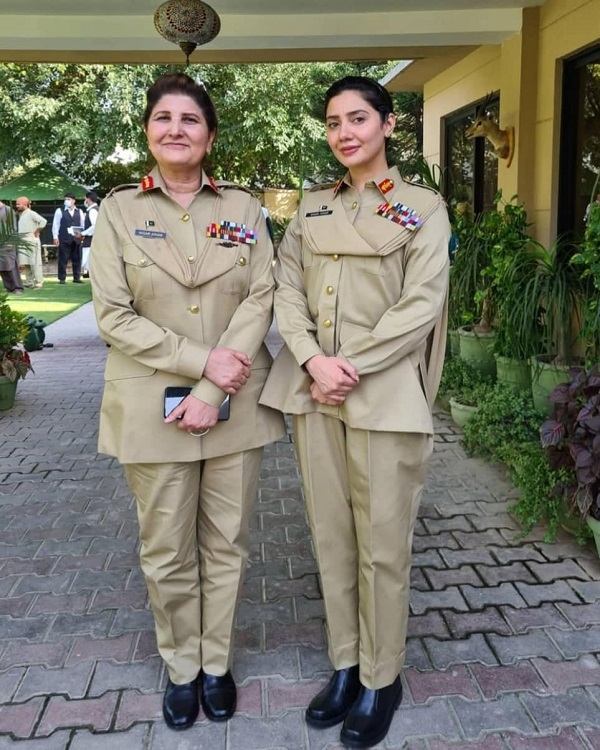Written by: Hurmat Majid
Posted on: October 22, 2021 |  | 中文
| 中文
Mehreen (Mahira Khan) and Aswad (Usman Mukhtar) in Hum TV's drama serial 'Hum Kahan ke Sachay Thay'
Viewers of the recent drama serials on Pakistani television channels attribute Umera Ahmad for the revived interest and popularity of Pakistani serials. However, her portrayal of patriarchal (weak) male protagonists as ‘heroes’ is highly problematic.
One male character after another in Ahmad’s screenplays is shown to be deeply flawed, but somehow always forgiven by the female protagonist in the end. What is worse is that the female leads who forgive the flawed men are shown to be strong women, while ladies who continue to live independently and thrive without the presence of a male figure, are shown as weaker characters.
Here’s a recap of the flawed men in Ahmad’s writing: In Meri Zaat Zarra-i-Bai’nishan, both Arfeen and Aadil are shown to lead normal lives without any remorse for the fact that although Saba is innocent, she is held responsible for a crime she did not commit. While Aadil is aware of her innocence from the beginning, Arfeen finds out later and thinks that marrying his son to Saba’s daughter is enough of a recompense for the wrong done to Saba. In the end, Arfeen is portrayed as a remorseless, pious old man.
In Sheher-i-Zaat, Salman Ansar, whose only qualification for being termed the drama’s ‘hero’ was his looks and wealth, ends up being forgiven by Falak for cheating on her, marrying another woman, and throwing her out of the house. The only hardship he experiences is when his second wife two-times him and runs away with a lot of his wealth before dumping him. In the end, to the dismay of viewers, Falak forgives Salman and both reunite. An alternative ending possible would have been that Falak could have gone on to build a life for herself and her daughter without Salman, but that would have broken the stereotype of a male dependent woman that Umera Ahmad is so bent on reinforcing.
In Durre Shahwar, Mansoor is depicted as the ideal husband for doing the bare minimum for his wife, after he spends years tormenting her in the early days of their marriage. Durre Shahwar is then shown to be inculcating the same submissive behavior in her daughter by telling her not to stand up to her husband for his misbehavior, and to “be patient” with him, like she was with Mansoor. The drama makes marital abuse acceptable, and the audience simply laps it up.
Coming to Hum Kahan Kay Sacchay Thay, the latest in this series of flawed dramas, Aswad, a deeply flawed pretty boy, holds a woman ‘he has been in love with since they were children’ (Mehreen), accountable for the death of a woman he jilted (Mashal). He goes to the extent of marrying Mehreen with the sole purpose of torturing her. It has an ironic ending when Mehreen falls in love with Aswad all over again, and forgives him for all the pain he has caused her.

Sajal Ali as Momina Sultan and Hamza Ali Abbasi as Qalb-E-Momin in spiritual-romantic Pakistani drama serial 'Alif'
However, these novels were written in an earlier time, and Ahmad has evolved since then as a writer. Alif is the example of Ahmad’s serials written more recently, and in this both the male and female protagonists are shown to be still evolving in their life’s journey by the end of the serial. There is no neatly tied ‘happy ending’ where they both end up together. The success of Alif shows that the viewers are more satisfied with the protagonists leading two separate lives, than ending up together.

Mahira Khan with General Nigar Johar. Mahira is playing General Nigar in an upcoming project based on the General's life 'Aik Hai Nigar'
Upcoming screenplays such as Sinf-i-Aahan and Aik Hai Nigar also present hope in terms of showing strong female leads on screen. As far as male leads are concerned, Pakistani dramas in general and Ahmad in particular, are reinforcing the stereotype of a traditional patriarchal culture. With an increasing number of educated and professional women in the Pakistani workforce, it is time that our women are portrayed as empowered with an ability to be masters of their own destiny, rather than as submissive creatures always at the receiving end.
You may also like: